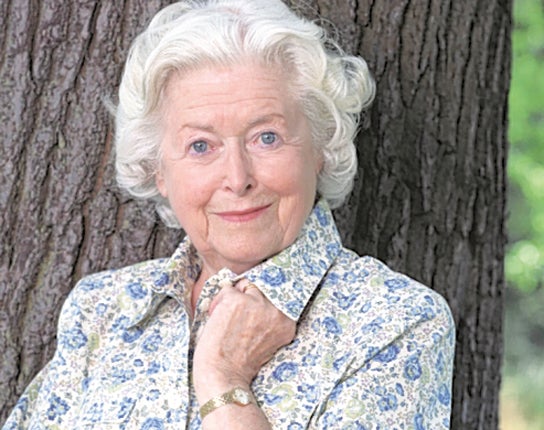The Week In Radio: It's all clicking into place for the silver surfers

Your support helps us to tell the story
From reproductive rights to climate change to Big Tech, The Independent is on the ground when the story is developing. Whether it's investigating the financials of Elon Musk's pro-Trump PAC or producing our latest documentary, 'The A Word', which shines a light on the American women fighting for reproductive rights, we know how important it is to parse out the facts from the messaging.
At such a critical moment in US history, we need reporters on the ground. Your donation allows us to keep sending journalists to speak to both sides of the story.
The Independent is trusted by Americans across the entire political spectrum. And unlike many other quality news outlets, we choose not to lock Americans out of our reporting and analysis with paywalls. We believe quality journalism should be available to everyone, paid for by those who can afford it.
Your support makes all the difference.The Archers, which was originally founded to impart Government advice about the turnip crop and the prospects for pig farming, has been dispensing some less rural tips recently. Peggy has been learning to surf the web – an activity almost guaranteed to end in the arrival of a romantic stranger in Ambridge. This storyline is in fact a not-too-disguised part of the latest BBC public information campaign to target the Digitally Disadvantaged. That's not those of us who regularly fritter vast chunks of our time on Facebook and email, but the nine million people who have never got online at all. Now a campaign called First Click has been devised to drag them into the 21st century.
Launched by Terry Wogan, who is now called (by nobody except press officers) the BBC's Media Literacy Ambassador, First Click appeared at intervals through the week promoting the wonders of the internet. Jeremy Vine talked to an elderly listener called Valerie, whom he had helped get online on his show in March. "I was just frightened of it," said Valerie. "Now I press any button and I know you can't break it. What's the worst thing you can do?" "The worst thing you can do is bring down the Pentagon's computer system," said Jeremy ominously, probably because he had just done an item on cyber-terrorism. He moved on to an ebullient Stuart Hall who has just learned to email. "I'm a Capricorn, I refuse to accept failure! I'm going to send you a photo of myself in the nude!" said the self-styled old duffer. News that the Government is thinking of saving on advertising by reviving free public information films on TV suggests we may see more of this kind of thing on radio too. Editorial concerns aside, given the cheery way this campaign was handled, it really would be premature to object.
It was fiftysomethings, now rebranded "midlifers", who were the focus of Radio 4's compelling Midlife Relaunch. The format was routine – three couples decide to give up the rat race and "live the dream" only to crash and burn, thus bringing comfort to wage-slaves everywhere. The couples included Denise and Paul who moved to Cyprus, expecting a host of openings for middle-aged accountants in the Cypriot economy, only to end up having conversations like, "You're not tired, you're depressed! You hide in sleep!" and "It's a horrible dilemma and I don't know where it's all going to end." Doomed attempts to "live the dream" are a popular storyline, especially in recessionary times, and we're all familiar with the narrative arc, so it was the more surprising that ultimately the documentary bucked the stereotype with two of three relaunches actually succeeding. Christine and Stuart, who set up a B&B in the Scottish Highlands and Fiona, who abandoned Derbyshire to run a dairy farm in Ayrshire, loved their new lives, and even the Cyprus migrants concluded bravely: "If the worst comes to the worst we'll just eat the tortoise."
Embracing ageing with open arms, the crustiest antediluvian on radio was back in the form of Ed Reardon, performing "With Great Pleasure without the pleasure" in a stage version of his own works. Written by Andrew Nickolds and Christopher Douglas, An Audience With Ed Reardon was a savage hymn to the horror of freelance life, complete with rejection slips, ("Dear Mr Reardon, how did you get this address?") and excerpts from his afternoon play, A Bargeful of Blood, described by one reviewer as "the most harrowing afternoon's ironing I've ever had". Failure is a theme that English writers have always done well – think of Dickens – and Reardon encapsulates brilliantly the plight of an ageing hack beset by new technology, patronising publishers and "12-year-old commissioning editors". You wonder what will happen when Ed encounters a BBC Media Literacy Ambassador, but somehow you can already imagine.
jane@janethynne.com
Join our commenting forum
Join thought-provoking conversations, follow other Independent readers and see their replies
Comments